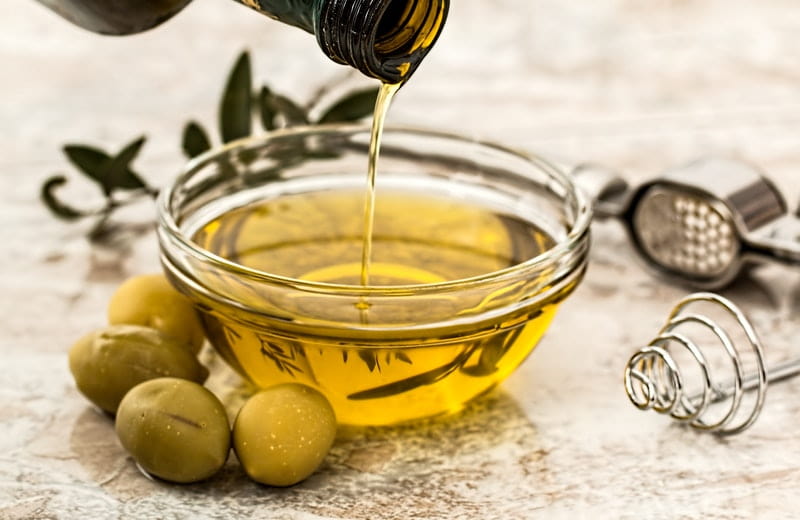Inflammation is a natural process in the body that is part of the immune system. Inflammation happens naturally when the body is working to heal itself. When we see or feel inflammation it is usually in the form of swelling, redness, or even warmth or pain as immune system cells rush to the site of the injury or infection to speed healing. This can happen on the surface or inside the body. While inflammation is a necessary part of the healing process, too much inflammation or chronic inflammation can damaging to our health.
Sometimes the body will attack itself (an autoimmune response) or confuse certain foods or medicines for viruses or bacteria which can flare up the immune system and trigger inflammation. This can lead to chronic inflammation which is not part of the healthy healing process and can actually cause disease.

Chronic inflammation has been linked to a host of diseases including Alzheimer’s, cancer, heart disease, Parkinson’s disease, and diabetes. Fortunately, there are things we can do to reduce inflammation in the body which may help us avoid or even manage these types of illnesses. These foods have been studied and well-documented for their healthy anti-inflammatory properties. Read on to learn more about the best anti-inflammatory foods and how to incorporate them into your diet.
1. Tomatoes
The antioxidant lycopene found in tomatoes has powerful anti-inflammatory properties. Tomatoes have been shown to reduce the development of cancer and benign tumors, and prevent heart disease. Eating fresh tomatoes, tomato juice, or tomato sauce can deliver a daily dose of heart-healthy lycopene, reduce blood pressure, and lower cholesterol. Whenever possible, choose vine-ripened, organic tomatoes.
If you prefer to consume tomato juice or tomato sauce, just be careful to avoid sodium and sugar. Many processed tomato products like sauce and juice have added salt and sugar, which can offset the benefits of the tomato. Fresh tomatoes or home made tomato juice or sauce is your best option.
A word of caution with tomatoes: some people are sensitive or allergic to nightshade vegetables like tomatoes, eggplant, and peppers. People who have this dietary restriction may actually experience an inflammatory response when they eat these vegetables. If you suspect that you have a dietary sensitivity to nightshade plants, seek out the medical advice of an allergist to confirm. If you are sensitive to nightshade plants, then skip the tomatoes.
2. Olive Oil
There is a good reason that the Mediterranean diet has been advocated by medical experts from the Mayo Clinic to the American Heart Association for its heart-healthy benefits. The diet is full of fresh fruits and vegetables, and one very important healthy fat: olive oil. Virgin olive oil contains powerful phenolic compounds that can fight inflammation as well as medications like ibuprofen. Make sure to choose virgin or extra virgin olive oil.
3. Green Leafy Vegetables
Green leafy vegetables like spinach, kale, and collards are full of antioxidants like vitamin E and vitamin K that can help fend off inflammation. Not only do these antioxidants help prevent chronic inflammation, but they can also help fill the gaps in common nutritional deficiencies.
Do not limit yourself to salads when it comes to green leafy vegetables! You can sauté them into a dinner, add them to a wrap or sandwich, or even blend them into a smoothie.
4. Almonds
A study in the European Journal of Clinical Nutrition found that a diet that incorporates almonds can reduce cholesterol and C-reactive protein levels, which is a marker for heart disease. Almonds also contain the antioxidant vitamin E which helps fight inflammation by neutralizing free radicals.
About 1/3 cup of almonds (or about 24 almonds) is a single serving that can provide these important health benefits. You can eat raw almonds, or sprinkle them on salads. Just be sure to avoid almonds that are covered in salt or sugar.
5. Salmon
Wild caught Alaskan Salmon is full of omega-3 fatty acids that reduce inflammation. Omega-3s interfere with leukocytes (a type of immune cell) and a type of enzyme called cytokines, both of which cause inflammation. It is important to note that not all fish is equally beneficial. Eating wild caught Alaskan Salmon has the most beneficial compounds. The alternative – farm raised salmon – have lower amounts of beneficial Omega-3s, but they also have antibiotics and pesticides that could cause inflammation.
6. Strawberries
Of all the fruits with beneficial compounds, strawberries have been named one of the best fruits for inflammatory conditions like arthritis. The vitamin C in strawberries is an antioxidant that can help reduce high blood pressure and cholesterol. Eating about 20 strawberries a week has also been linked with reduced C-reactive protein, a marker of inflammation. Strawberries are easy to work into your diet because they are delicious. Try to opt for organic whenever possible, and always rinse the berries well before eating them. You can add strawberries to a salad, mix them in a fruity smoothie, or just eat them fresh.
Preventing disease by reducing inflammation does not necessarily mean that you have to take a pill. Making some dietary changes and adding in these anti-inflammatory foods can make a real difference in your body’s chronic inflammation and your risk for associated heart disease, cancer, and neurodegenerative disease. Add in more of these anti-inflammatory foods while reducing your intake of foods known to cause inflammation for the best results. You may find that you get short-term benefits by feeling better overall and enjoying fresh foods while improving your long-term health at the same time.